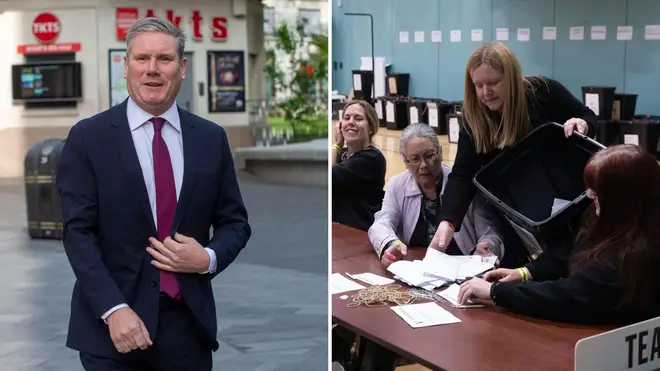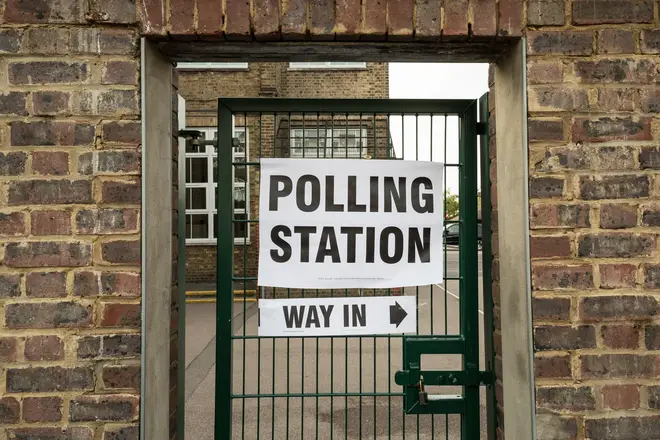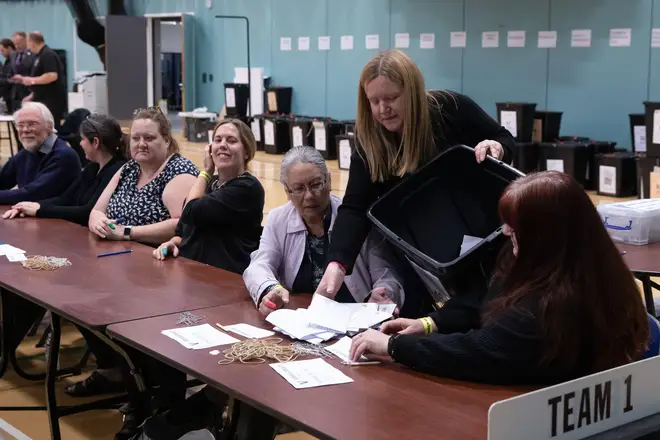
Clive Bull 1am - 4am
17 May 2023, 12:00

Keir Starmer's recent comments on LBC suggesting that a future Labour government will commit to lowering the voting age to 16 have produced a strong negative response from Conservative MPs, writes Lancaster University electoral politics lecturer Dr Thomas Loughran.
Keir Starmer's recent comments on LBC suggesting that a future Labour government will commit to lowering the voting age to 16 have produced a strong negative response from Conservative MPs.
This party-political divide on attitudes towards voting age reform is increasingly interpreted as inevitable and based on simple electoral self-interest.
However, the partisan shift in the "Votes-at-16" debate is a relatively recent political development and reflects important changes in UK politics.
Voting age reform has become entangled with the rise of age as a critical electoral divide and the emergence of "culture wars" politics.
This polarisation risks advocates and opponents losing sight of the issues at the heart of voting-age reform and further politicises discussions around electoral rules.

While the Conservative government at Westminster have always opposed voting age reform this has masked considerable diversity on the issue within the wider party.
As recently as 2018 the Electoral Reform Society released a report on the Conservative Case for Votes-at-16 including contributions from senior Conservative party figures such as Nicky Morgan.
In Scotland, the Conservatives under Ruth Davidson reversed their initial opposition to the SNP's introduction of "Votes-at-16" having had experience of it in Scottish elections.
The introduction of "Votes-at-16" in Wales was notably consensual with cross-party support generated for reform across the Welsh Assembly (now Senedd).
Despite voting age reform being an emblematic policy for the Labour administration, the Welsh Conservative party did not officially oppose the lowering of the voting age for Welsh elections and several Conservative Assembly members were long-standing advocates for the measure.

However, the emergence of a degree of cross-party support for "Votes-at-16" in Wales and Scotland has not prevented the UK wide debate on the issue at Westminster becoming increasingly polarised.
The 2017 General Election marked an important turning point with age becoming recognised as the critical demographic predictor of party support - with younger people far more likely to support Labour and older people far more likely to support the Conservatives.
Read more: Labour 'plot to rig electorate' by giving vote to EU nationals and 16-year-olds
This has had the paradoxical effect of both raising the importance of "Votes-at-16" as an issue in UK politics while at the same time reducing the prospects of establishing a cross-party consensus for implementing it.
Coupled with the marginalisation of the reformist wing of the Parliamentary Conservative party and the increasing focus on "culture wars" narratives in UK politics, the perfect environment has been created for "Votes-at-16" to become a partisan political football.
There are several significant consequences and risks of this for both advocates and opponents of voting age reform.
Firstly, polarisation makes "Votes-at-16" more likely to be implemented but less likely to be universally accepted as legitimate.
Secondly, partisan division on voting age reform increases the likelihood that other aspects of the electoral process may become politicised with potentially unforeseen consequences.
Thirdly, the transformation of the voting age debate into a primarily partisan issue may marginalise important democratic arguments both for and against reform by making the debate about party politics rather than young people's political engagement and representation.